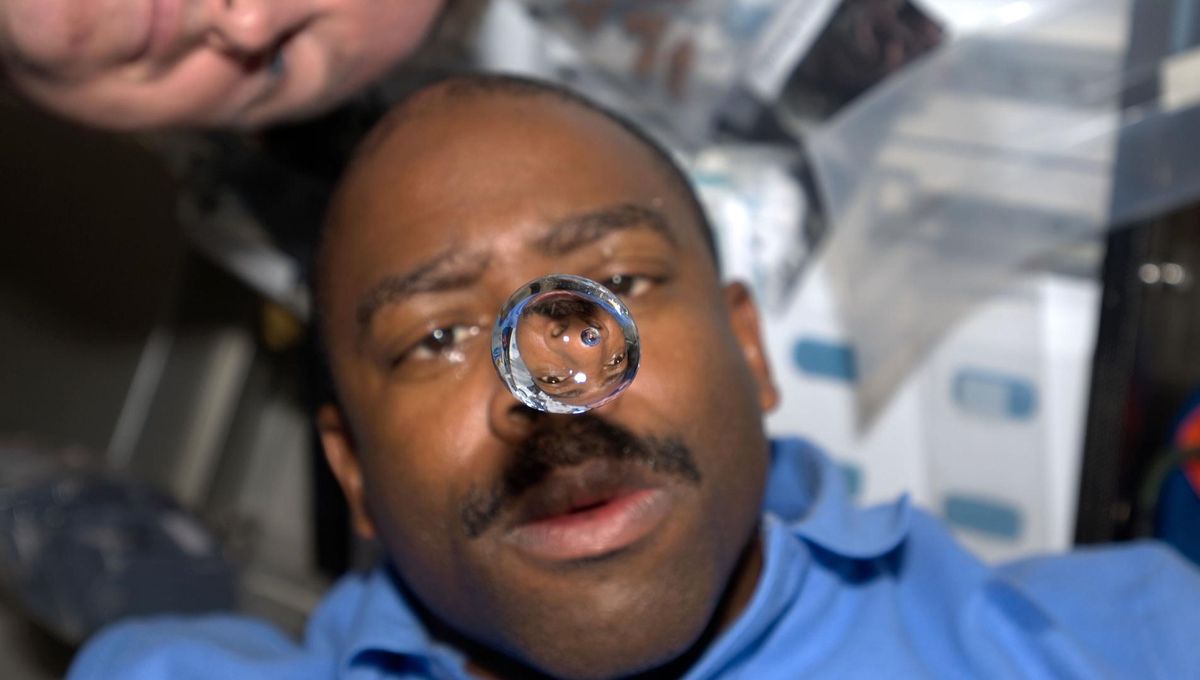
The term zero-G has been, for a long time, a popular way to explain the apparent lack of gravity in space. But it is an incorrect term. There’s nowhere in the universe where there is zero gravity. The term microgravity is actually what is now being used to more correctly describe what is going on. Still, it doesn’t exactly capture why astronauts float in space.
What is gravity?
We are not going to answer the question of what gravity is in full, since even the greatest minds of our species are still struggling with it. That said, we can discuss some important CliffsNotes to get an idea of why there is no such thing as zero-g.
Gravity is one of the four fundamental forces of the universe. The other three are the electromagnetic, the strong nuclear, and the weak nuclear force. Gravity is by far the weakest, but we don’t notice because gravity simply adds up. The more massive a body is, the higher its gravitational pull.
The gravitational force scales as the inverse square of the distance. This is math jargon meaning that the gravitational pull goes down pretty rapidly the further you are from said object. If one planet is twice as far from the Sun as another, for example, it will feel a quarter of the force (since two squared is four). But even though gravity might get smaller and smaller the further you are from an object, it never goes to zero. As long as there is mass (even your own or that of your instruments) there is gravity.
The International Space Station (ISS) orbits about 400 kilometers (250 miles) over the surface of the Earth. It does experience less gravity than us on the surface, but only a tiny bit less. The gravitational pull of the Earth is still very strong. If this were not the case, satellites couldn’t stay in orbit, and they and the Moon would simply fly off into space.
How do you get weightlessness in space?
The best explanation for this belongs to Douglas Adams. In his The Hitchhiker’s Guide to the Galaxy series, he explains that flying is the art of throwing oneself to the ground and missing. This funny remark is 100 percent the correct explanation for the feeling of weightlessness in space.
Satellites and the Moon stay in orbit around the Earth because they are moving very fast. The International Space Station moves at about 8 kilometers (5 miles) per second. The ISS goes around the Earth in just 90 minutes and it is constantly being pulled towards our planet by gravity. If it were just magically placed on its orbit, without any lateral motion, it would simply come vertically down.
But the ISS and other stuff in orbit is moving. As it comes down towards Earth it is also moving laterally, always missing our planet – at least, until its retirement. The balance between the gravitational pull and the motion around the Earth gives rise to the “free fall”. The forces experienced by the astronauts are roughly balanced, so they are weightless.
Gravity is still there, under their feet or their heads depending on their orientation, but they have learned to throw themselves at the ground and miss many times every day.
All “explainer” articles are confirmed by fact checkers to be correct at time of publishing. Text, images, and links may be edited, removed, or added to at a later date to keep information current.
Source Link: Why There Is No Such Thing As Zero-G